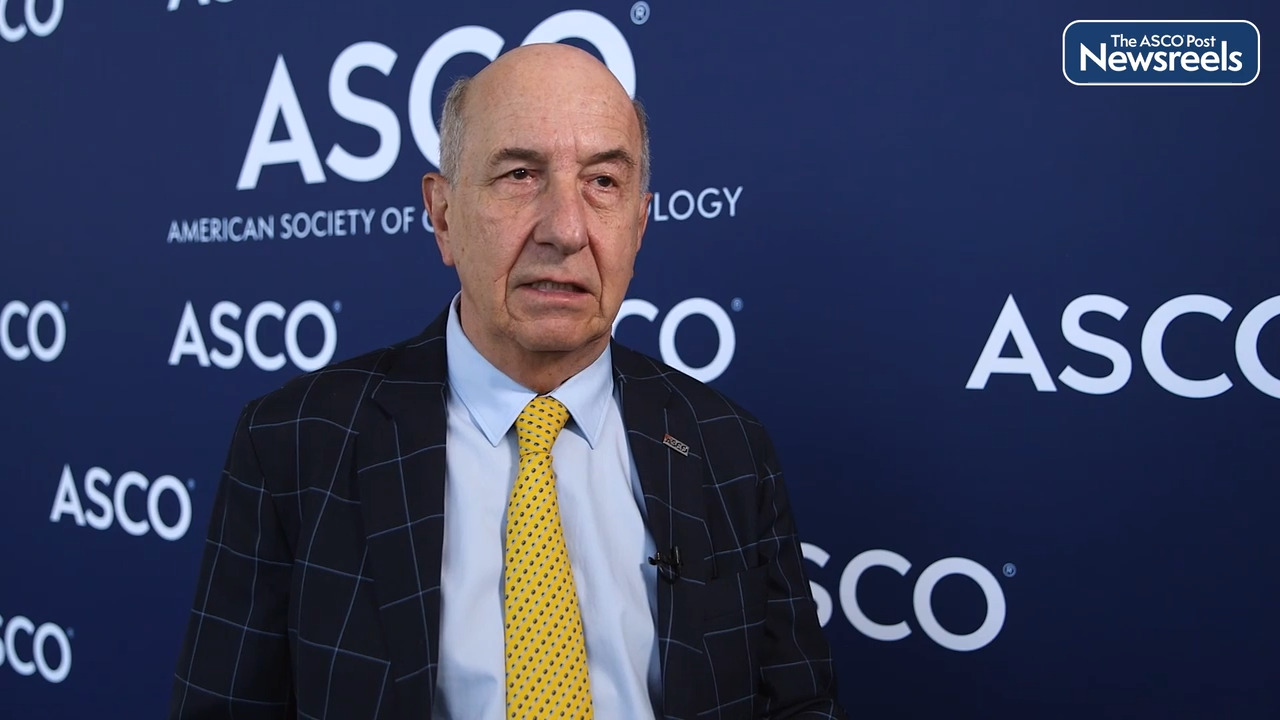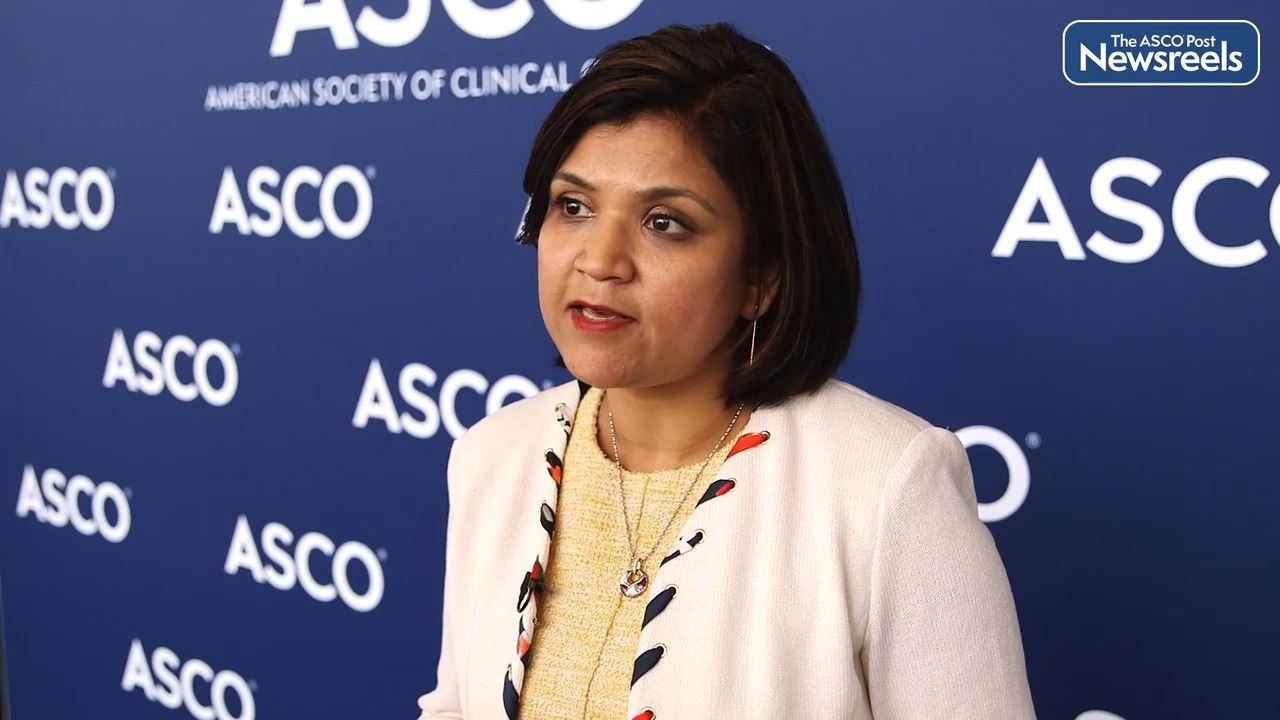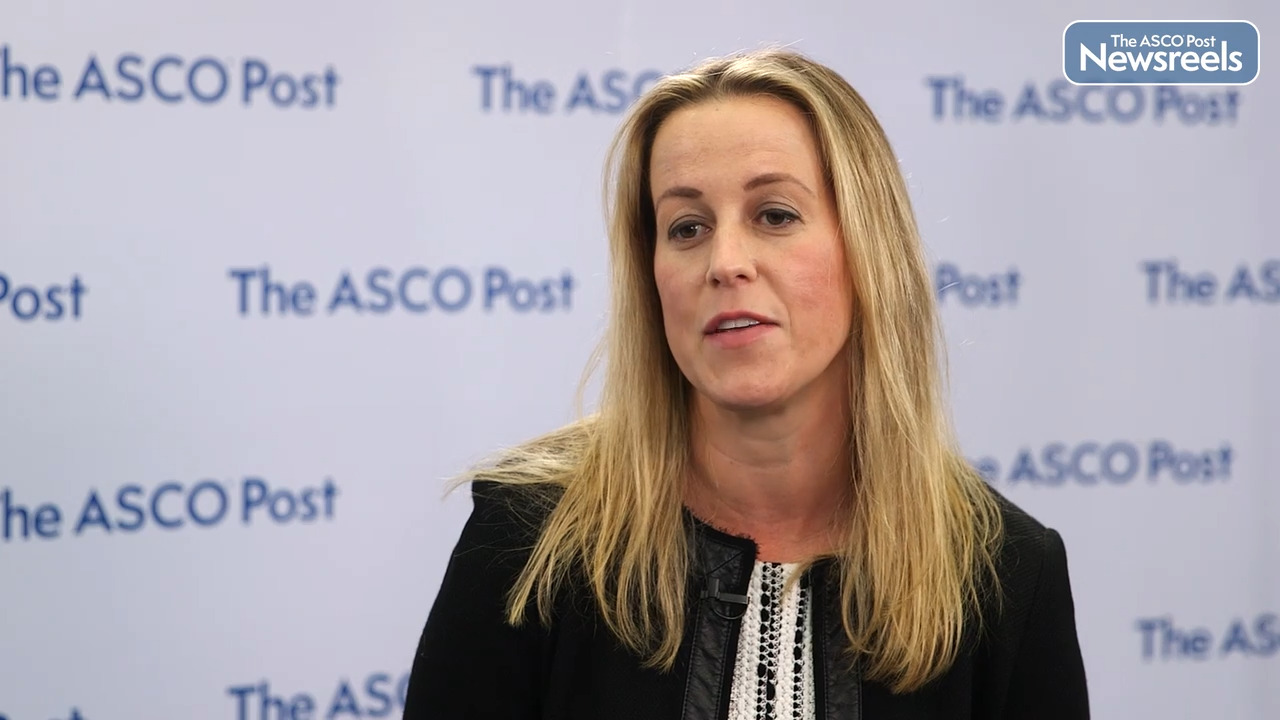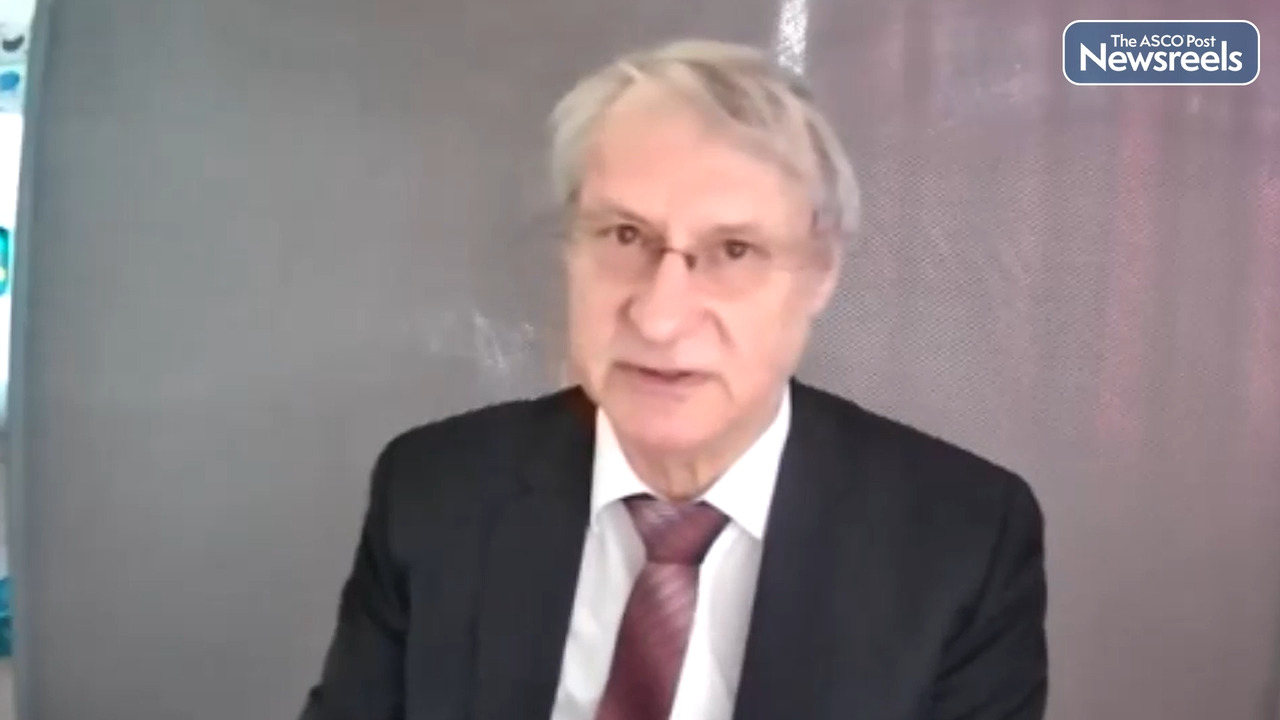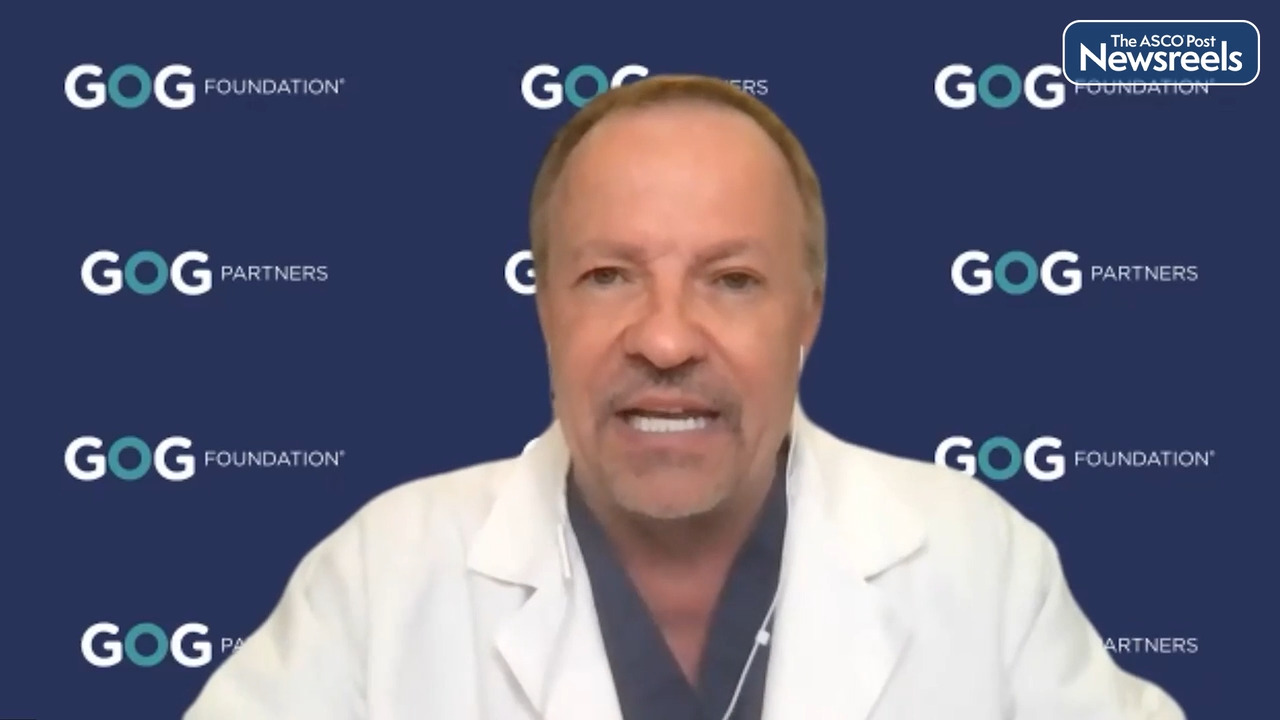Manali I. Patel, MD, MPH, on Equitable, Value-Based Care: The Effectiveness of Community Health Worker–Led Interventions
2022 ASCO Annual Meeting
Manali I. Patel, MD, MPH, of Stanford University School of Medicine, discusses clinical trial findings on the best ways to integrate community-based interventions into cancer care delivery for low-income and minority populations. Such interventions may improve quality of life and patient activation (often defined as patients having the knowledge, skills, and confidence to manage their health), as well as reduce hospitalizations and the total costs of care (Abstract 6500).
Transcript
Disclaimer: This video transcript has not been proofread or edited and may contain errors.
I'm so excited to present our work that's been a multi-year collaboration with a community-based organization and employer union health fund that provides health benefits to individuals who would otherwise not have health insurance. These are individuals that drove us to McCormick. They're individuals that work in our hotels here in Chicago. They're also individuals that work in casinos across the United States. They approached us almost 10 years ago, asking for us to help to consider how to redesign cancer care, such that their employees, once they were diagnosed with cancer, would be able to achieve equitable care at lower costs. 10 years ago, we launched an initiative. We conducted a pilot study in Chicago amongst individuals here where we paired them with a community health worker to help to engage patients in advanced care planning, as well as symptom management. And we found significant improvements in goals-of-care documentation. Using community-based participatory research methods, which means that we involved a community advisory board who guided us throughout every aspect of the project, we created a randomized trial of the pilot. Individuals that were randomized to the intervention arm received a community health worker as part of their care. This community health worker was bilingual and bicultural and would assist patients with advanced care planning and symptom management, but then also assisted patients with screening for complications from social determinants of health. So, for example, they would screen for food insecurity and connect patients to the local food bank, or they would screen for housing insecurity and connect individuals to the housing authority. Individuals as part of usual care received a benefit redesign. Every individual, either in the intervention arm or in the usual care arm, which received usual care, which was the control group, they received cancer care services that were free of charge if they went to the oncology provider that was the highest performing in the city. We conducted this randomized trial in Atlantic City and Chicago. There were 160 individuals that were randomized, 80 into each arm. And we followed patients for 12 months in an intent-to-treat analysis. And what we found was a significant improvement in our primary outcome, which was health-related quality of life. And that was an improvement of almost 11 points in the functional assessment cancer therapeutics general assessment. We also found significant reductions in acute care use, meaning hospitalizations reduced over a 12-month period. So mean hospitalizations amongst individuals in the intervention arms was significantly lower than those in the control room. We also found significant improvements in people's engagement and confidence to manage their own health, something called patient activation. And then here at ASCO, we presented the results on total cost of care as well, and found a significant reduction in total cost of care of almost 50% median total cost of care difference. These results move us from action of disparities to interventions that help to achieve health equity. And the next step is to disseminate this work across all the employer union health fund practices across the United States.
Related Videos
The ASCO Post Staff
Alfredo Carrato, MD, PhD, of Alcala de Henares University in Spain, discusses phase II results from the SEQUENCE trial, which showed that nab-paclitaxel, gemcitabine, and modified FOLFOX showed significantly higher clinical activity than the standard nab-paclitaxel and gemcitabine in the first-line setting of patients with untreated metastatic pancreatic ductal adenocarcinoma (Abstract 4022).
The ASCO Post Staff
Shilpa Gupta, MD, of the Cleveland Clinic Foundation, discusses an updated consensus definition for standard therapy and clinical trial eligibility for patients with metastatic urothelial cancer who are platinum-ineligible, criteria that are proposed to guide treatment recommendations for this population. This may be especially important now that the U.S. Food and Drug Administration has restricted the use of first-line pembrolizumab to those who are considered platinum-ineligible (Abstract 4577).
The ASCO Post Staff
Erika Hamilton, MD, of Sarah Cannon Research Institute at Tennessee Oncology, discusses phase III data from the DESTINY-Breast03 study, which reinforced the consistent safety profile of fam-trastuzumab deruxtecan-nxki (T-DXd) vs ado-trastuzumab emtansine (T-DM1) in patients with HER2-positive unresectable and/or metastatic breast cancer. The findings also support T-DXd’s risk benefit over that of T-DM1 (Abstract 1000).
The ASCO Post Staff
Rainer Fietkau, MD, of Germany’s University Hospital Erlangen, discusses phase III findings of the CONKO-007 trial, which examined the role of sequential chemotherapy and chemoradiotherapy administered to patients with nonresectable locally advanced pancreatic cancer following standard-of-care chemotherapy (Abstract 4008).
The ASCO Post Staff
Bradley J. Monk, MD, of the University of Arizona College of Medicine and Creighton University School of Medicine, discusses phase III findings from the ATHENA–MONO (GOG-3020/ENGOT-ov45) trial. It showed that rucaparib as first-line maintenance treatment, following first-line platinum-based chemotherapy, improved progression-free survival in patients with ovarian cancer, irrespective of homologous recombination deficiency status (Abstract LBA5500).
